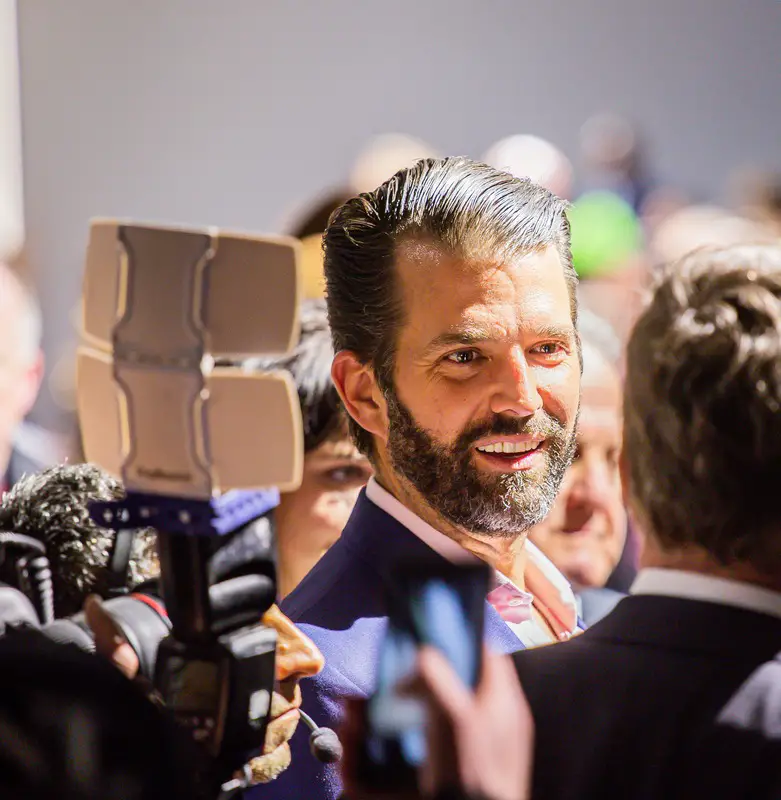Donald Trump Jr., the son of President-elect Donald Trump, recently embarked on a self-proclaimed “very long personal day trip” to Greenland, where he planned to film footage for his podcast. His visit comes in the wake of his father’s assertion that the U.S. owning the Arctic territory is an “absolute necessity.”
On Tuesday, January 7, 2025, Trump Jr. touched down at Nuuk Airport in the capital city of Greenland. However, officials from Greenland made it clear that they had no intention of meeting with him during his visit, highlighting the escalating tensions between U.S. ambitions and Greenlandic autonomy.
Donald Trump assured the people of Greenland that they would be treated well by the U.S., but also refused to discount the possibility of using military force or economic pressure to acquire the territory. He even hinted at imposing high tariffs on Denmark if it refused to negotiate Greenland’s status.
Greenland’s government has been adamant in its refusal to consider U.S. ownership. A parliament member of Greenland, Aaja Chemnitz, expressed that Greenland is not a part of the “MAGA” movement and that the U.S. interest in their island has caused fear and unease among the majority of the population.
Danish Prime Minister Mette Frederiksen labeled the U.S. proposal as “absurd,” reiterating that “Greenland is not for sale.” In a display of solidarity, the Danish government highlighted Greenland’s place in the country’s coat of arms, demonstrating its significance in Denmark’s domain.
The United States has long recognized the strategic importance of Greenland, maintaining a substantial military presence at Thule Air Base, which serves as a ballistic missile early-warning system. Situated 750 miles north of the Arctic Circle, the base houses around 600 U.S. military personnel and civilian contractors.
Greenland’s abundant reserves of rare earth metals and natural resources, made increasingly available due to climate change, are of interest to the U.S. Geological surveys indicate that Greenland has the largest undeveloped deposits of rare earth elements in the world, essential for manufacturing electronics and military equipment. The territory is also estimated to contain 38.5 billion barrels of undiscovered oil and natural gas.
Prime Minister Múte Egede of Greenland has emphasized the territory’s aspirations for independence from Denmark, expressing their determination to “remove the shackles of colonialism.” The movement for independence has gained substantial momentum, although opinions are divided regarding the timing and economic consequences.
Greenland currently receives an annual subsidy of roughly $600 million from Denmark, which constitutes around two-thirds of its government budget. Achieving independence would necessitate finding alternative sources of substantial financial support.
Since 1979, Greenland has held a unique autonomous status within the Kingdom of Denmark, with the Self-Government Act of 2009 granting Greenland control over most domestic affairs. Denmark, however, maintains authority over foreign affairs, defense, and monetary policy.
There is a historical precedent of the U.S. attempting to buy Greenland, including an offer of $100 million to Denmark in 1946. Today, the territory’s 57,000 residents, primarily Indigenous Inuit people, grapple with issues of sovereignty and economic development as international interest in their homeland grows.
Global observers recognize Greenland’s strategic value due to its location along the Northwest Passage, a potential major shipping route as Arctic ice continues to melt. After U.S. diplomatic intervention, Denmark blocked attempts by China to invest in Greenland’s infrastructure.
As of March 7, 2025, the geopolitical landscape surrounding Greenland has evolved significantly since Donald Trump Jr.’s visit on January 7. President Donald Trump has reiterated his interest in acquiring Greenland, emphasizing its strategic importance and resource wealth. In a recent address, he stated that the United States will take over Greenland “one way or the other,” promising prosperity and security to its inhabitants if they join the U.S.
This renewed interest has intensified discussions about Greenland’s independence from Denmark. The island is preparing for a general election on March 11, 2025, with pro-independence sentiments gaining momentum. All major political parties support independence, though they differ on timelines and strategies, especially considering Greenland’s economic reliance on Denmark.
In response to external political pressures, Greenland’s parliament passed a bill on February 4, 2025, banning political parties from receiving contributions from foreign or anonymous donors to protect the territory’s political integrity.











